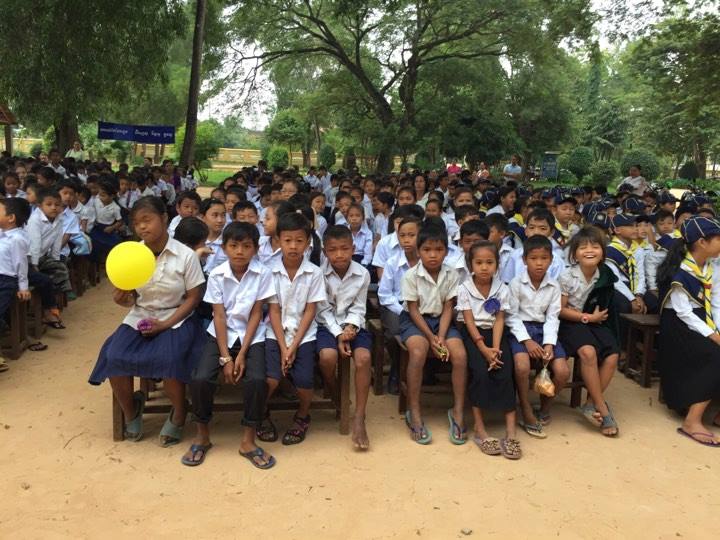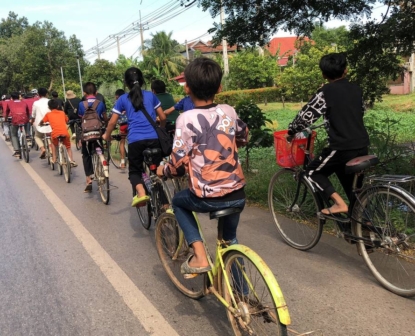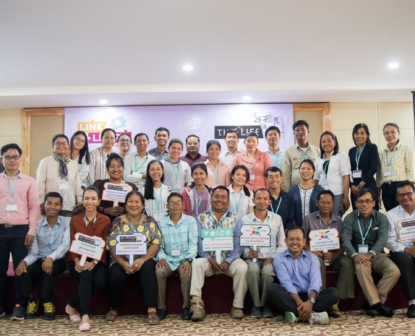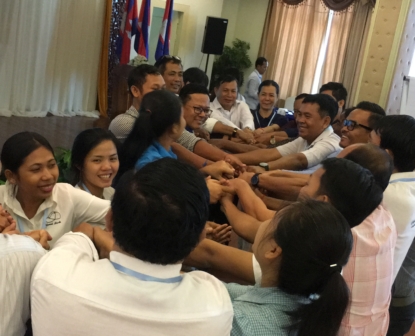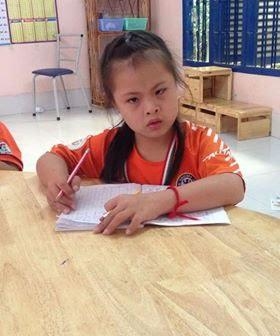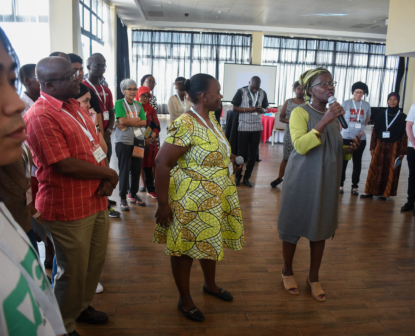Project
Empowering Parents to advocate for the rights of their Children with Intellectual Disabilities
-
Amount Funded
98,234 EUROProject Duration
01 Jan 2018 - 31 Dec 2020 -
-
Lead organisation
-
The Rabbit School was founded in 1997 as a response to the need for educational activities for children with intellectual disabilities, that was non-existent at that time. For this group of children, the establishment of the Rabbit School marked the first crucial step in developing appropriate, formal educational programs for Cambodian children with intellectual disabilities who are extremely disadvantaged. Rabbit works towards the rehabilitation and full integration of CWID into the Cambodian society. The Rabbit School provides a place where they are treated with dignity and can learn and grow at their own pace. Currently, Rabbit School has three main programs: Rehabilitation and Medication of Children with Intellectual Disability, Inclusive Integration of Children with Intellectual Disability at public schools, and Vocational Training and Job Placement for Youth with Intellectual Disability.
-
Organisation
The Rabbit School was founded in 1997 as a response to the need for educational activities for children with intellectual disabilities, that was non-existent at that time. For this group of children, the establishment of the Rabbit School marked the first crucial step in developing appropriate, formal educational programs for Cambodian children with intellectual disabilities who are extremely disadvantaged. Rabbit works towards the rehabilitation and full integration of CWID into the Cambodian society. The Rabbit School provides a place where they are treated with dignity and can learn and grow at their own pace. Currently, Rabbit School has three main programs: Rehabilitation and Medication of Children with Intellectual Disability, Inclusive Integration of Children with Intellectual Disability at public schools, and Vocational Training and Job Placement for Youth with Intellectual Disability.
-
Project
Through a range of capacity building initiatives, Rabbit School Cambodia (RSO) trains parents of Children with Intellectual Disability (CWID) and helps them to get organised, so that they will be able to themselves become a powerful and well-respected organisation and an instrument of change in the areas of government policy and societal attitudes towards CWIDs in Cambodia. We have come to recognise that the parents of the children who RSO helps have the potential to be powerful advocates for the rights of CWID. To get started the Rabbit School Parent’s Association – consisting solely of the parents of CWID – is set up and will take an active and central role in all of the advocacy, lobbying and awareness raising activities. Throughout the project, the increased risk of sexual abuse against CWIDs, especially girls, is highlighted in our trainings and discussions with parents and local authorities. This major and ongoing issue is discussed in a frank and open manner, not hidden or ignored, as is often the case in a traditional society like Cambodia.
-
-
Through a range of capacity building initiatives, Rabbit School Cambodia (RSO) trains parents of Children with Intellectual Disability (CWID) and helps them to get organised, so that they will be able to themselves become a powerful and well-respected organisation and an instrument of change in the areas of government policy and societal attitudes towards CWIDs in Cambodia. We have come to recognise that the parents of the children who RSO helps have the potential to be powerful advocates for the rights of CWID. To get started the Rabbit School Parent’s Association – consisting solely of the parents of CWID – is set up and will take an active and central role in all of the advocacy, lobbying and awareness raising activities. Throughout the project, the increased risk of sexual abuse against CWIDs, especially girls, is highlighted in our trainings and discussions with parents and local authorities. This major and ongoing issue is discussed in a frank and open manner, not hidden or ignored, as is often the case in a traditional society like Cambodia.
-
“After my son went to this special school, I noticed that he is able to play with friends and has skilled teachers as well as well decorated classrooms with materials for children with intellectual disabilities.” – A mother of a child with intellectual disability in Phnom Penh
The project “Empowering Parents to advocate for the rights of their Children with Intellectual Disabilities” by the Rabbit School Organization (RSO) utilised different campaign formats to raise awareness and strengthen the capacities of key stakeholders to empower parents to advocate for the rights of their children with intellectual disabilities.
The project’s campaigns included 6 school campaigns that were completed to promote children’s rights to access equal education, especially for children with intellectual disabilities. They also created a strong message to all parents in the communities on bringing their children to school regardless of their disabilities. Furthermore, 2 “Opening School Day” campaigns were completed to raise awareness and advocate with service providers at the sub-national level to improve the non-discriminatory provision of education services to children with intellectual disabilities. At the same time, RSO organised and celebrated several key events, including 4 celebrations of the “World Autism and Down Syndrome Day” (1 time at the national level and 3 times at the community level) under participation of MoSVY, DAC, and NGOs as well as 3 celebrations of the “International Day of People with Disabilities” (1 time at the national level and 2 times at the community level).
With parents, 3 roundtable discussions on “Challenges of the parents of children with intellectual disabilities and how the government deals with above challenges based on law and policy for children with disabilities” were held, followed by 2 national inclusive education forums with a parent and relevant partners. A national disability forum was conducted as well, where the parents’ association met with business leaders and others from the private sector to advocate for the inclusion of people with intellectual disabilities in the Cambodian labour market. Parents were also involved in 4 capacity building training sessions conducted with local authorities and school directors/teachers on the policy of education for children with disabilities and the law on protection and promotion of persons with disabilities.
Concerning other stakeholders, the National Institute for Special Education (NISE) and RSO organised 2 different dissemination workshops on the “Basic Inclusive Education Manual” to teacher trainers and relevant project stakeholders. Furthermore, research on the impact and implementation of the government policy regarding children with intellectual disabilities was conducted and 5 dialogue meetings/workshops with the MoEYS were conducted on increasing its financial support to children with intellectual disabilities by covering salaries for special education teachers managed by RSO.
Publications:
- Interactive activities in the classroom for children with intellectual disabilities:
Please see the linked publication.
- Parents’ group raises concern on special needs teachers to resign:
Please see the linked publication.
- Roundtable discussion with parents and policymakers:
https://www.facebook.com/BayonTelevision/videos/952341325287104
- “What is the best solution for children with intellectual disabilities?”:
https://m.facebook.com/story.php?story_fbid=284191972687584&id=448642810716
- “Making our voice loader!”:
https://voice.global/blog/making-our-voices-louder/
Videos:
- 15 years old girl runs for children with disabilities
- I need a school
- Special teacher resigns
- Voiceless to voice up
Case study:
- “Meet Little Lyhuoy from the Rabbit School Organisation”:
https://voice.global/stories/meet-little-lyhuoy-from-the-rabbit-school-organisation/
-
News

